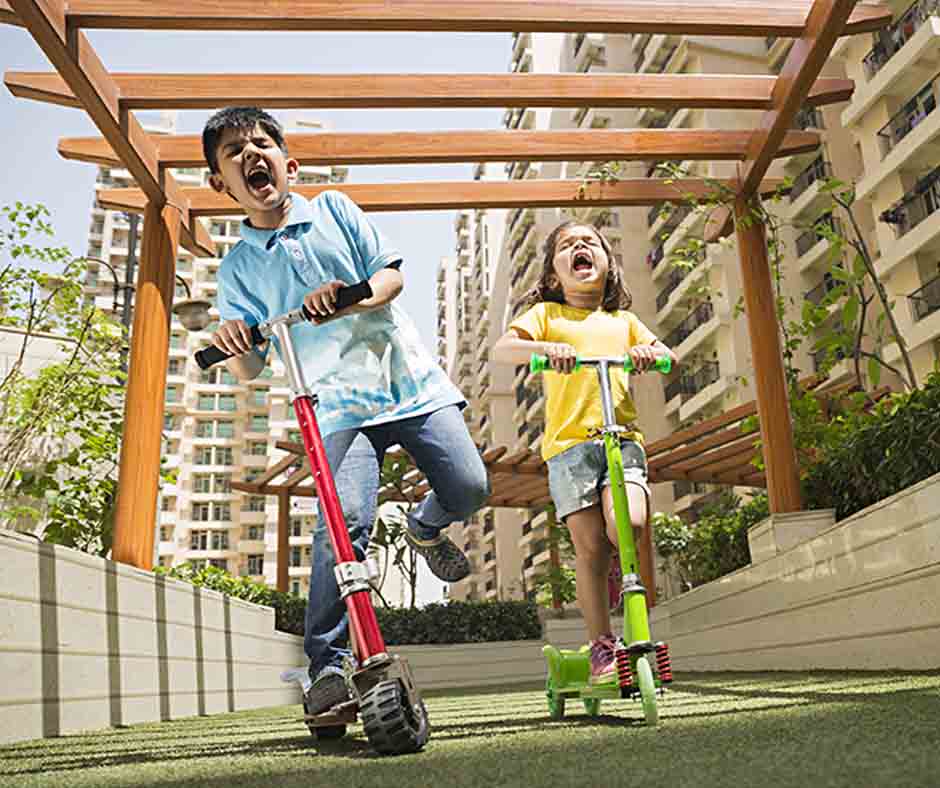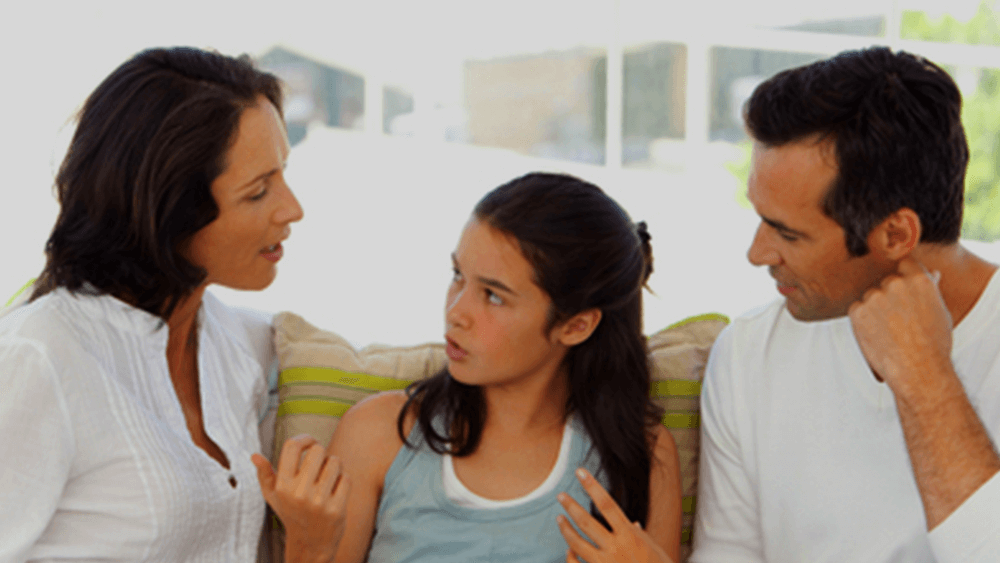How to deal with anxiety and depression in children?

Reasons for Anxiety & Depression
- Lack of Free Play
- Bad Parenting
Over the last few decades, children’s free play time has been continually declining. Even on holidays, in their rush from class to class, they rarely ever ‘play’. Ahaaa! When I say ‘play’, I mean the outdoor play and not mobile games.
I believe, this reduction of ‘play time’ is playing a crucial role in increased levels of anxiety and depression among children.
Let us rewind for a little while…
As a child, what are the memories associated with the games you played? Was it hide and seek, or lock and key or simply ‘pakada pakadi’ (catching-catch)? Or, was it creating an imaginary world with dolls, or building forts, or enacting a superhero in front of the mirror? Maybe, it was none of these but debating with friends or playing hand cricket or breaking of windows, are your most vivid play memories. Maybe a few of my reader friends were not into physical play. Your play memories might be around ludo or chess or snakes and ladders or monopoly or carrom.
From holidays to a few precious after-school hours, to the tiffin time breaks in school, the free play would have filled, much of your free time.
But what about your children? Do they play as much as you used to? Most probably – NO.
An article in the American Journal of Play raises concern about how much children’s play time has declined. Their study concludes that a lack of play is playing a crucial role in the rise of anxiety and depression, leading to discipline issues and attention to slavery.
What is attention to slavery? Attention to slavery has two parts.
- It makes a person restless and they need constant challenges to stay attentive – imagine the fidgety fingers that long to respond to every notification on the phone.
- It makes a person respond positively to positive attention. If anyone gives negative attention, this person goes berserk. These people have relationship issues.
Why has free play time been continually declining? One of the reasons is, parents have exerted, ever increasing control and monitoring, over children’s activities. Another major reason is intense competition in the scoring of marks and fear of being left out if the kids do not score enough.
What is free play, are you asking? Free play is any play/game/activity a child undertakes, organises, executes, and is self-directed. It has no trophies, no ONE winner, but a lot of activity.
Free play provides critical life experiences, without which, young children cannot develop into confident, competent adults. Its value has not been recognized. As a result, free play time for kids has gone unprotected.
Anxiety and Depression in children due to free play-
The loss of unstructured free play for play’s sake is at the core of this alarming observation. As parents, we should understand the role of free play and establish it back in our children’s lives.
The competing needs for academic and athletic success and children’s safety are compelling reasons for parents to justify their children’s hectic life. But perhaps parents can begin to identify small changes — such as openings in the schedule, backing off from quite so many supervised activities, and possibly slightly less hovering on the playground that would start the pendulum returning to the direction of free, imaginative, kid-directed play.
Any child who free plays regularly will learn how to deal with anxiety and depression.
Parenting as a cause of anxiety and depression in children-
Over the past few years, there has been a significant increase in anxiety and depression in teens and young adults. Several studies have documented this rise. One study showed that five times many children and college students reported depression or anxiety than in 1975 (about 50 years ago). Suicide rates quadrupled from 1950 to 2005 for children less than fifteen years. For teens and young adults ages 15-25, it has doubled.
Parents need to understand that their child is giving his/her’s best while doing a chore. You can’t always blame the kid for waking up late, not doing some work on time or playing more. It’s their age and at a specific age, they will understand that discipline and patience go hand in hand.
As playing is concerned, physical exercise reduces the risk of depression but parenting plays a very important role. Parents who always abuse or beat up or insult their children in front of people or even alone, tend to come face to face with a stubborn and difficult child.
Abuse hampers your child’s self-esteem and harsh behavior produces complexes in them.
As a parent, don’t be stubborn to always make your child understand that you are always right. It’s not always true. Understand them and their perspectives as well as learn along with them. Parents are after all human beings and can also make mistakes. Don’t push your opinions on your children.
Be a friend and get to know a lot about them.
Leave A Reply
You must be logged in to post a comment.





Comments
Well said. Times have changed completely since we were kids. We used to play so much and involve in so many Free Plays (wasnt aware of the term till a few minutes ago! Thanks! ). There are no Free Plays for our kids, everything is competitive right from the games on PlayStation or iPads to hobby classes and the competition in schools is unbelievable.
Yes, Free Play should come back in our children’s lives. Thanks for an informative and thought-provoking post.
5 Reasons to Keep a Travel Diary #AtoZChallenge
I am so glad this article resonated with you. Thanks for commenting…
I whole-heartedly agree that free play is very important for children! I’d never heard the term attention-slavery before, but wow! I think everyone with a smartphone suffers from it a bit these days… I’m participating in the A to Z challenge this year at Dragon’s Eye View!
Thanks for your thoughts. Will visit your blog to read A to Z posts
Free play is very important, but if your child is showing signs of depression, please see your family doctor for a referral to a mental health specialist.
Sorry, but it isn’t all cured by the simple, all-encompassing blanket statement, “Any child who free plays regularly learns how to deal with anxiety and depression.”
Well meaning thought, but much harm can be done by expecting anyone, let alone teens and children, to “learn to deal” with their depression.
Hi Lisa,
Thanks a ton for taking time out and commenting. Would love to know if you know of any instance where free play led to a child being harmed? Did you mean that free play doesn’t work at all? I assume you must have solid reasons for your thoughts. Would love to know them. Maybe, there is an angle I am missing. Please enlighten…
In my experience of over 18 years with children AND adults, we have seen so many instances where FREE PLAY has elevated a person. We have many experiences where FREE PLAY has lifted spirits of people.
In areas that have seen natural destruction, in scenarios where entire families have been wiped out, in stories where deep trauma has been inflicted, FREE PLAY has created MAGIC.
Looking forward to your thoughts to understand this topic better.
Thanks once again, for writing in. With deep gratitude…
naren
These days it’s almost always about learning new things and catching up the pace. The word ‘free play’ doesn’t make sense with today’s kids but I believe we as parents need to enforce it at the tender age so that kids learn to slow down.